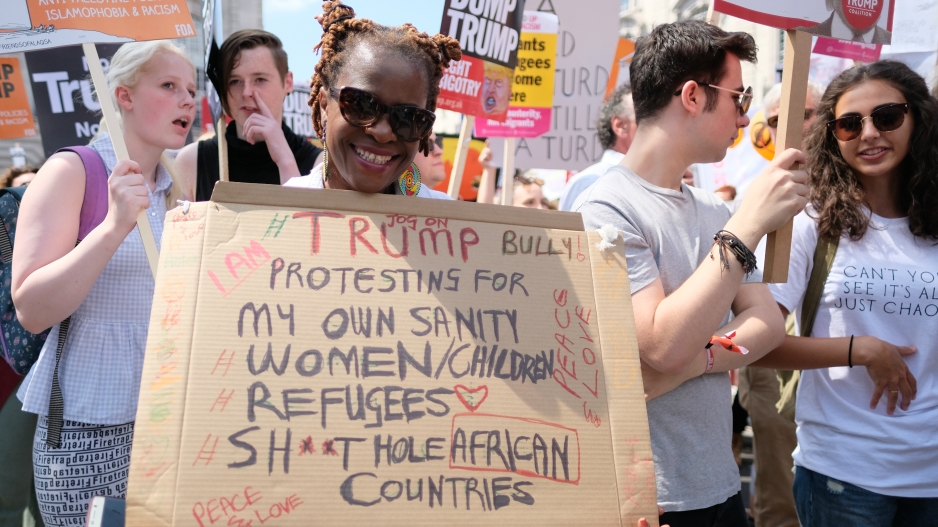
There are approximately 5.3 million children and youth in the United States with at least one undocumented parent. Election day was a disaster for these children – over 4 million of whom are U.S. citizens. Many millions of young Americans were up until late that night, sobbing as they expressed to their parents their worries about their families being ripped apart. Executive orders are now amplifying this disaster, reaching into the daily lives, educational opportunities and life chances of millions of young United States citizens. Within recent days, a recipient of Deferred Action for Childhood Arrivals with no criminal record, a permanent resident and mother of four who voted, and other mothers of U.S.-born citizens have been arrested or deported. These are the first in a tidal wave of deportations of those without serious crimes who represent no threat to our country.
Under current executive orders in effect or under consideration, the offenses considered as appropriate to start removal proceedings extend to the misdemeanor of crossing the border for the first time, to stating on employment forms that they can legally work, or even enrolling one’s child in the federal school lunch program. These place the large majority of the 11 million undocumented at immediate risk of deportation. In the last years of the Obama Administration, prioritization for removal proceedings was restricted to those with repeat immigration violations, serious crimes like felonies or violent crimes. At a time when net migration across the southern border is in the southerly, not northerly, direction, deportations based on misdemeanors like traffic tickets will devastate the lives of hard working parents who labor and contribute to our economy.
Children and youth stand to be harmed by these draft policy directives. Close to a third of all children of immigrants in the United States have at least one undocumented parent. The deportation of parents of these millions of children and youth, both born in the US and those who have spent nearly their whole lives in the US, would irreparably harm their development. Dooming the chances of roughly one child in every classroom in our country not only harms the social fabric of our nation, but its economic future.
In a recent consensus statement of the Society for Research in Adolescence published in the Journal of Research on Adolescence, Carola Suarez-Orozco of UCLA, Roberto Gonzales of Harvard and I summarized all existing rigorous research on the effects of undocumented status on parents and youth. This research shows that the parent-child separations that would occur among families brought under scrutiny of these executive orders would harm the development of hundreds of thousands of children and youth – interrupting their education and greatly harming their psychological development.
Our research also shows that extending current undocumented status without a pathway to citizenship and threatening and enacting deportation would harm children’s early cognition, their academic achievement, their educational attainment, and their ability to contribute to U.S. society. Children of the undocumented attain nearly a year and a half less education by their mid twenties – a whopping effect that would only be worsened under these executive orders. As a country we need to be providing educational and economic opportunities, rather than blocking them for children and youth. Threats of deportation also drive parents to keep their children out of school, preschool, and after-school programs – all critical building blocks for a successful workforce.
These children also suffer from worries, anxiety and depression due to their parents’ undocumented status. The costs to society of the mental health problems borne by children of the undocumented will soar under the Trump administration’s proposed policies. We are a nation of immigrants. Our physical and human infrastructure – from the Continental Railroad to the interstate highway system to the IT revolution – has benefited from the labor of millions upon millions of people from all over the world coming to the United States to pursue educational and economic opportunity. Many initially came without papers but were eventually integrated into the country’s social, academic and economic development. To block these pathways to educational and economic success will harm not only our moral standing in the world, but our society’s future.
Hirokazu Yoshikawa is the Courtney Sale Ross Professor of Globalization and Education at New York University and a faculty affiliate of the Metropolitan Center for Equity and the Transformation of Schools at NYU. He also co-directs the Global TIES for Children Center at NYU. He is the author of Immigrants Raising Citizens: Undocumented Parents and Their Young Children.

